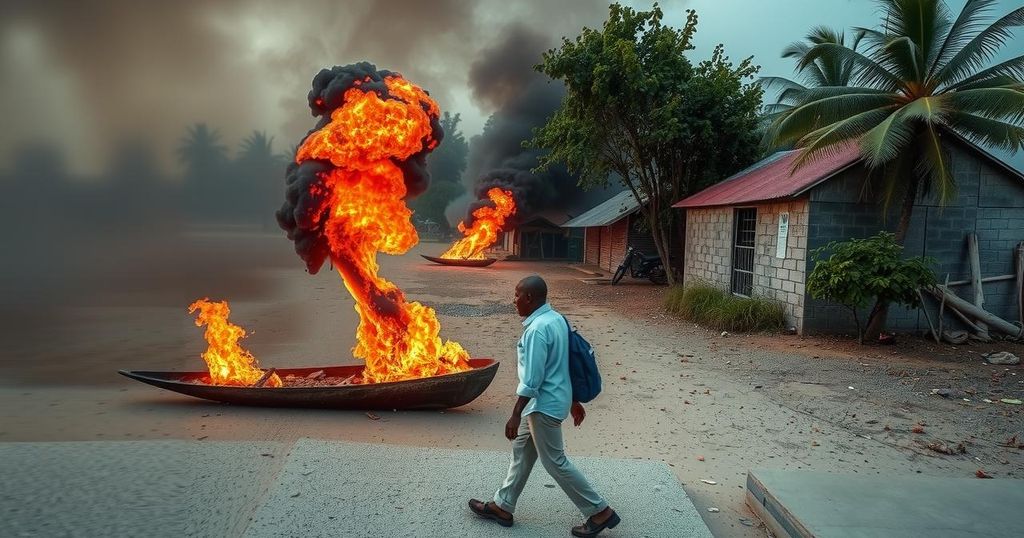Mozambique’s Election Turmoil: Understanding the Rising Unrest

Mozambique is in turmoil following disputed presidential election results, leading to over 250 deaths from protests since October. The opposition claims victory, prompting unrest including roadblocks, vandalism, and prison escapes. The violence represents the most severe electoral conflict in decades, impacting regional stability significantly.
Mozambique is currently experiencing its most severe election-related violence in three decades since the end of civil war. Following a December 23 ruling by the nation’s top court, which upheld a controversial presidential election outcome favoring the governing party, Frelimo, at least 125 individuals have died during protests across the country. This increase contributes to a total of 252 fatalities since the election took place in October, as demonstrators dispute allegations of election rigging by the governing party, leading to clashes with the police and military.
The opposition leader has confidently proclaimed himself the true victor of the election and has called for a nationwide shutdown. Protests have escalated to the extent that tires are being set ablaze in streets, vandalism has occurred in various establishments, informal roadblocks have been established by aggrieved citizens, and there has been a significant prison break involving hundreds. Cídia Chissungo, a human-rights advocate, described the situation as “not even protest anymore. This is like a social revolt.”
The current instability in Mozambique poses substantial implications for both the surrounding region and the global community, as the country serves as a key port linking southern Africa with various international markets.
Mozambique has witnessed upheaval resulting from electoral disputes, particularly in the wake of recent presidential elections. The long-governing party, Frelimo, has faced allegations of election malpractice, inciting public dissatisfaction that has transformed into widespread social unrest. With significant casualties reported among demonstrators and a marked increase in violent confrontations with law enforcement, the prospects for political stability in Mozambique appear under considerable threat. The country’s role as a strategic port and its interconnectedness with broader regional dynamics further magnify the severity of the situation.
In summary, Mozambique is undergoing a critical period of unrest characterized by severe violence linked to disputed election outcomes. With a reported toll of over 250 dead and growing public dissent against the ruling party, the nation stands at a crossroads. The ramifications of this unrest are particularly significant given Mozambique’s strategic importance in the region. As protests evolve into something beyond mere political dissent, the need for a peaceful resolution has become more urgent than ever.
Original Source: www.nytimes.com







